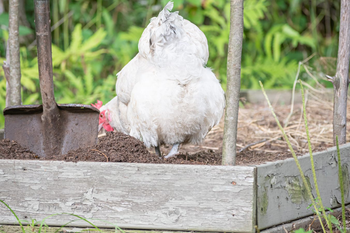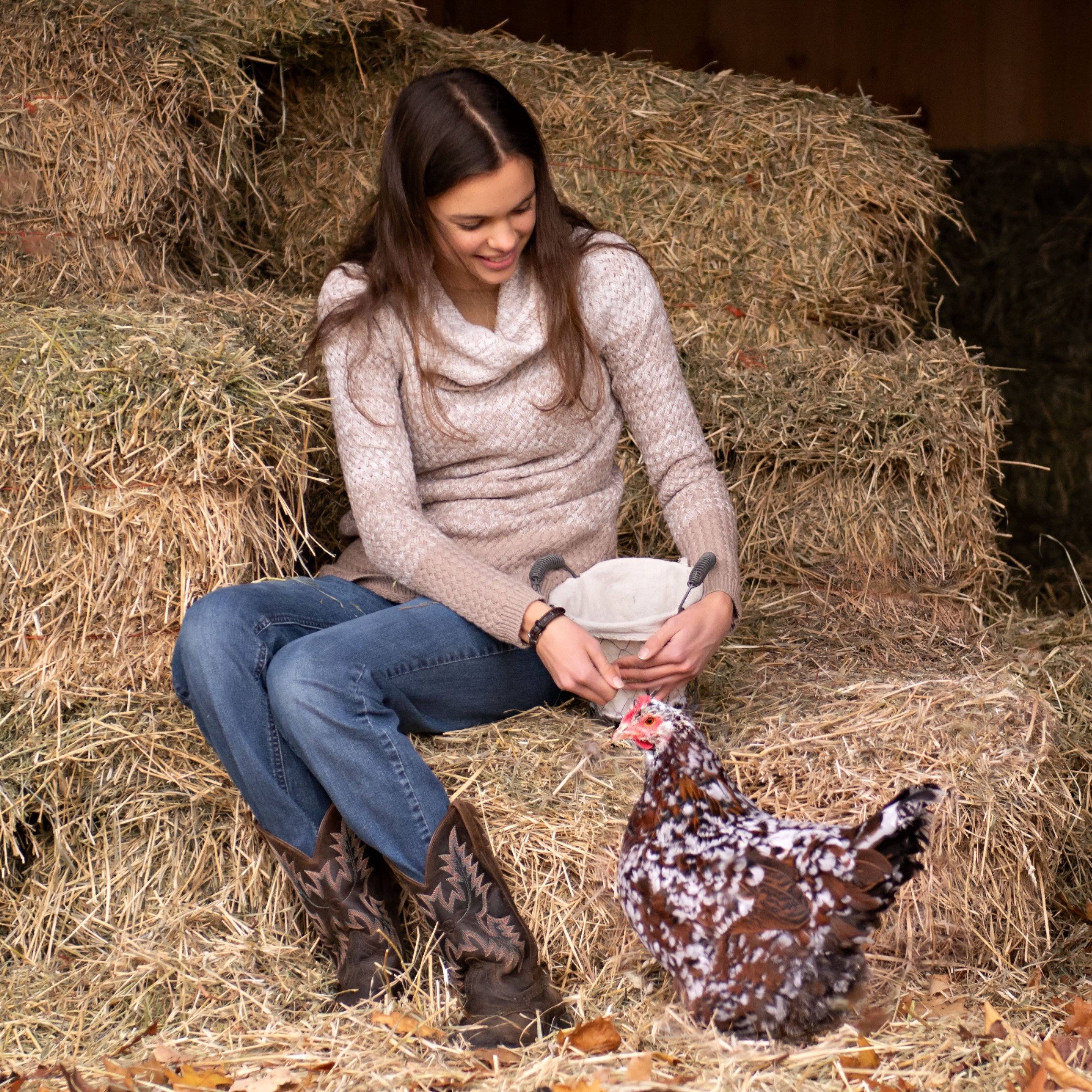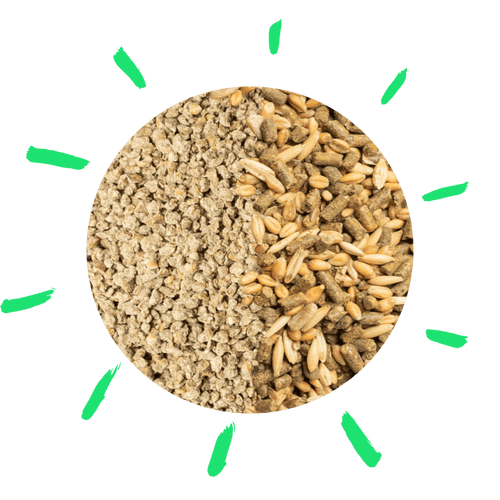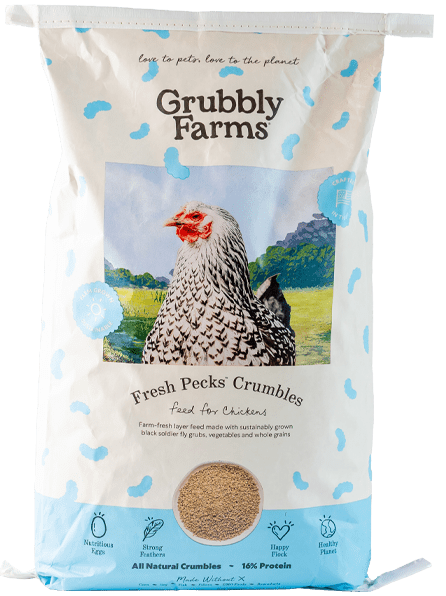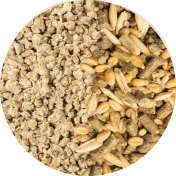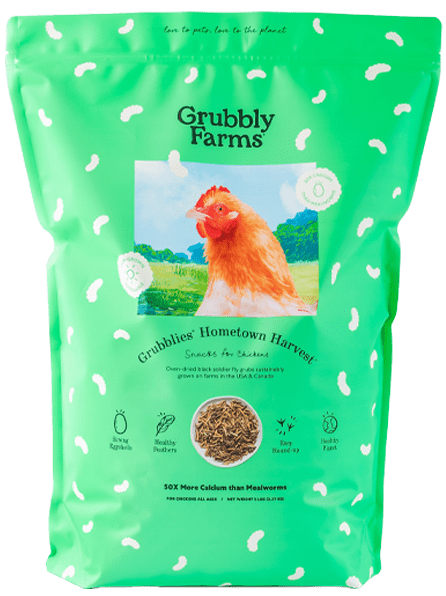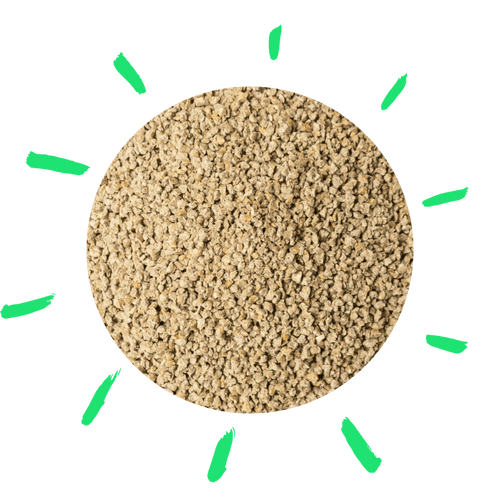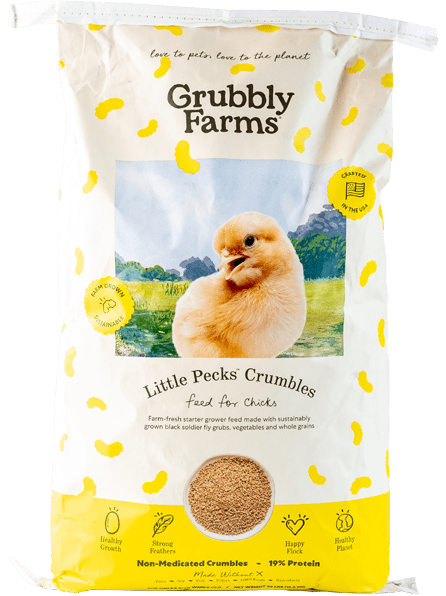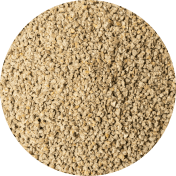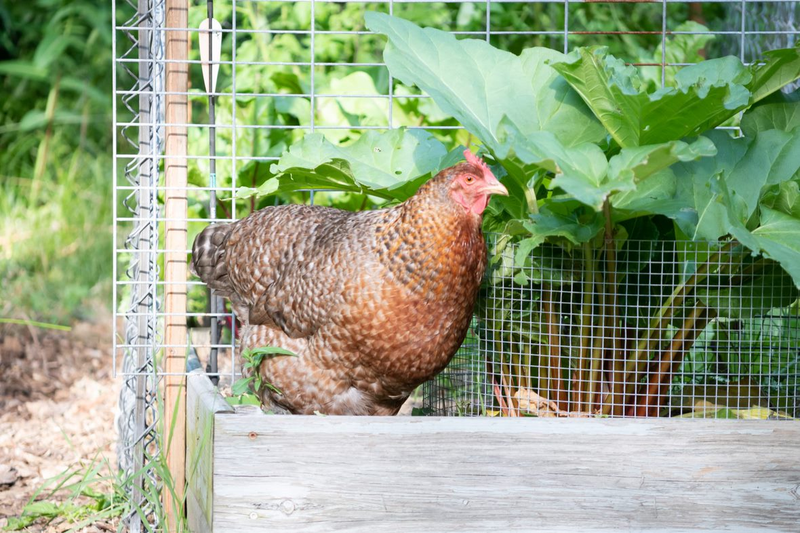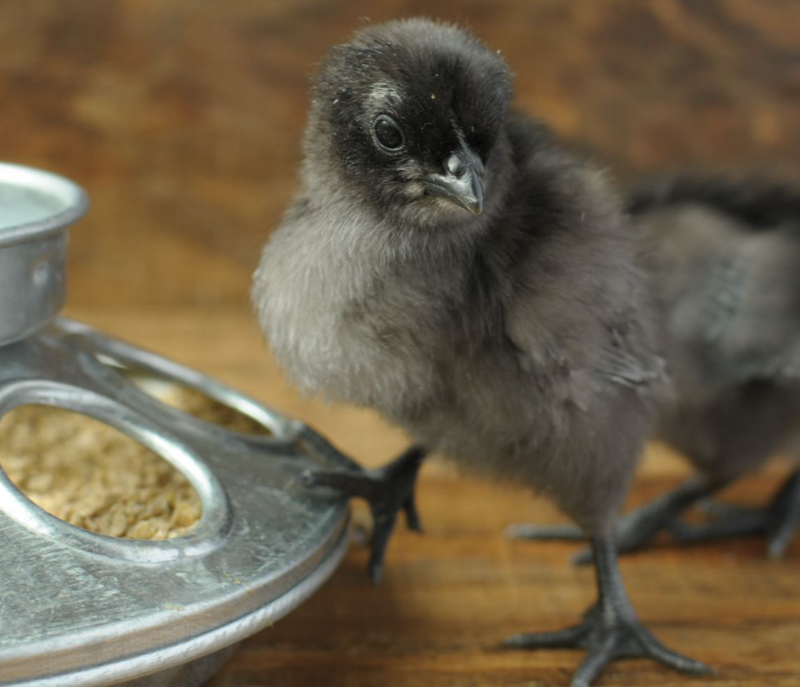Not only can your backyard flock provide you with delicious fresh eggs, but they can also provide you with garden gold.... chicken manure compost! The waste that chickens produce does not have to be wasted. It doesn’t even have to sit around and turn into a stinking pile of manure. Instead, turn that waste into compost!
Using chicken poop to make a nutrient-rich compost for plants and gardens is a great way to manage chicken poop while investing in a healthy homestead. Composting chicken manure is quite simple with a couple of tips for turning that chicken poop into natural fertilizer for your plants.
What Are the Benefits of Chicken Manure Compost?
Chicken manure compost provides many benefits to soil and your garden. Here are a few key benefits that it can provide:
- Natural Fertilizer: Adds nutrients like calcium, sulfur, magnesium, nitrogen, potassium, phosphorus, manganese, copper, zinc, and iron to the soil.
- Improves Soil Structure: Helps improve water retention, soil drainage, and improves soil aeration.
- Feeds Soil Microbes: Soil microbes feed on organic matter like chicken manure compost which then makes the nutrients more readily available to plants.
Chicken manure compost is especially beneficial for nitrogen-loving plants. Plants like tomatoes, peppers, leafy greens, cucumbers, squash, sweet corn, pole beans, and rhubarb all benefit from soil that has had chicken manure added to it.
Step 1: Understanding How to Compost Chicken Manure

Fresh chicken manure needs to be turned into compost in order for it to be beneficial for your garden and plants. To turn chicken manure into compost, you must start a composting system and promote the composting process. The compost system is aided by beneficial soil microbes–which is why it's more effective than letting your chicken poop sit in a manure pile.
Hot vs. Cold Composting
There are two methods of composting: cold composting and hot composting. Both can turn chicken manure into compost.
Hot composting entails a little more maintenance, but it converts the chicken manure into compost faster. With this method, you need to bring the compost pile up to 104-160°F for an extended period of time through proper management of moisture and turning.
Cold composting needs minimal maintenance… but the process composts your organic materials at a slower rate. For cold composting, you can start a compost pile and allow the materials to naturally decompose. You can stimulate the composting process by occasionally turning the composting materials, but just letting the materials sit and decompose will achieve the same results, just in a longer time span.
Starting Your Composting System
Here’s how to go about starting a simple hot compost system that will help turn chicken manure into valuable compost:
1. Choose a Location
Select an area to start the compost. You can have a compost pile or a compost bin. Just make sure the area will keep the composting material fairly contained.
2. Gather Materials
Start adding brown and green materials to your compost. You want a ratio of 2 parts brown materials to 1 part green material, or about twice as much brown material as green material. (See Step 2 for a clearer idea of browns vs greens).
3. Turning
Once you have a decent pile started, you can start turning the compost on a regular basis. The more frequently you turn the compost, the faster it will decompose. Turning the compost introduces oxygen to the pile which encourages the composting process.
4. Moisture
Monitor the moisture level of your compost pile. Sprinkle it lightly with water if it seems too dry, or cover it with tarps if it is supposed to rain and your compost is already moist enough. The compost should seem like a moist, wrung-out sponge.
5. Temperature
You are aiming to get your compost to the correct internal temperature through the process of turning it and encouraging the decomposition process. Take the temperature of your compost pile using a probe thermometer. You want an internal temperature between 140-160°F, which kills any harmful pathogens in the compost.
Make sure the compost maintains that temperature for at least 3 consecutive days. This step is particularly important when dealing with animal waste.
6. Aging
Continue turning the compost and monitoring its moisture level and temperature. For chicken poop compost, you want to allow it to compost for at least 90 days.
7. Ready!
After 90 days, your chicken manure should be turned into rich compost that you can use in your garden!
If you don’t have the time to put into hot composting, just let the compost pile rest to allow the materials to decompose naturally into compost. You can continue to add both brown and green materials in the right ratios. However, you will have to dig into your compost pile to find the rich compost that is being created under the composting materials.
Step 2: Knowing What to Add to Chicken Manure for Composting

So, we already mentioned that you need to gather brown and green materials to make chicken manure compost, but you may be wondering what those materials are exactly.
Brown materials are any natural materials that are rich in carbon. Green materials are any natural materials that are rich in nitrogen. To remember which is which, you can think of green leaves versus brown leaves–green leaves are fresher and have more moisture while brown leaves are drier.
- Brown Materials: wood shavings, straw, corn husks, dried leaves, dried pine needles, cardboard
- Green Materials: chicken poop, kitchen and garden scraps, fresh grass clippings, hay, other livestock manure (not cat or dog feces)
The main green material that you will be using in your compost is chicken manure. Fresh chicken manure is considered green material because of its high nitrogen content.
Getting the Green/Brown Ratio Right
You will need the right combination of both green and brown materials for the composting process to occur. Aim for a ratio of 2 parts brown material per 1 part green material when starting and maintaining your compost pile.
Using chicken coop litter is a great way to easily mix in brown material with the chicken manure (green material). Chicken coop litters like wood shavings and straw are great brown materials that can be added to the compost pile right along with the chicken manure.
The Smell Test
You will be able to tell if your green-to-brown material ratio is off for your compost by doing a smell test. If your compost starts to stink, then you probably have too much green material and not enough brown material. Simply add more brown material to your compost and give it a turn to mix in the new materials.
How to Handle Greens & Brown with Cold vs Hot Composting
For cold composting, you can constantly add both brown and green material to your compost pile as it ages and naturally decomposes.
For hot composting, you will want to build up a pile to turn into hot compost. While you turn the first pile into compost, start a second pile where you can constantly add new brown and green materials. You may even want to start a third pile as the first pile ages and you start composting the second pile. That way you always have a compost pile you can add fresh brown and green materials to without messing up the composting process of the first and second piles.
#3. How Long Does Chicken Manure Take to Compost?

Chicken manure contains one of the highest levels of nitrogen and phosphorus compared to other livestock manure. While the high nitrogen levels create a rich compost that is especially beneficial for nitrogen-loving plants, it can be harmful to plants if the chicken manure is used directly on the plants.
The Risks of Using Chicken Manure Compost Too Soon
Fresh chicken manure can ‘burn’ young plants and seedlings because of its high nitrogen content. That’s why chicken manure needs to be composted and aged before you use it in your garden. Fresh chicken manure, also called ‘hot’ chicken manure is also more likely to contain harmful pathogens or bacteria, which can be dangerous if you are using the manure in vegetable or edible gardens.
Composting and aging chicken manure help balance out the nitrogen levels and kill off harmful bacteria and pathogens. Composting and aging the ‘hot’ chicken manure can take place at the same time. Ideally, you want to let ‘hot’ chicken manure age for a minimum of 3 months, but preferably 6 months up to 1 year.
If you use the hot composting method in a warmed climate or sunny area, you may only need to let the chicken manure compost age for 3 months since the manure breaks down more quickly into compost.
For cold composting, you will want to age the chicken manure compost for at least 6-12 months since this composing process is slower and won’t be breaking down the manure as quickly.
#4. How to Use Chicken Manure Compost

Once you have aged the chicken manure and turned it into compost, you can start using it in your garden or for your potted plants! Since chicken manure compost is so rich in nutrients, you will want to use it in conjugation with some good gardening or potting soil.
In the Garden
For gardening, you can apply the chicken manure compost in a 1-2" thick layer over your garden each year. It is best to apply the chicken manure compost in the fall, after harvesting your garden. This gives the compost additional time to age over the winter and allows the compost to be naturally worked into the soil through decomposition and soil microorganisms.
In Pots
For potted plants, you can mix the compost into your favorite potting soil to add nutrients and create richer soil. Ideally, make sure the compost doesn’t compose more than 50% of your soil mixture.
#5. How to Make Chicken Manure Tea
Applying chicken manure compost directly to your garden or potting soil is excellent for your soil and your plants. However, there is something else you can do with chicken manure compost–You can make “chicken manure tea!” As unappetizing as it sounds, your plants will drink it up, enjoying every ounce!
Once you have some good, aged chicken manure compost you can make some tea for your plants. Here’s how to do it:
- Fill an old pillowcase about 2/3rds full of aged chicken manure compost. Tie off the top of the pillowcase.
- Place the pillowcase in a large bucket and fill the bucket with two times more water than the chicken manure compost in the pillowcase. The pillowcase should be completely submerged.
- Set the bucket in a sunny location to allow the tea to steep.
- About two to three times a day, dunk the pillowcase up and down in the water to introduce oxygen to the steeping tea.
- The tea is done steeping when it is a deep, tawny brown color. It is best to allow the chicken manure tea to steep for up to 2 weeks.
- Once the tea is done steeping, discard the pillowcase and its contents. Pour the ‘tea’ into storage containers.
Using Chicken Manure Tea
Before you use chicken manure compost tea directly on your plants, you will want to dilute it with water. Mix one part tea to four parts water and use the mixture to water your plants.
While chicken manure compost acts as a general amendment for your soil and plants, chicken manure tea can be applied directly to specific plants. This is great for plants that could need a bit more of a nutrient boost, such as seedlings or ailing plants. Chicken manure tea provides a burst of nutrients directly to the plant’s roots which will help the plant grow healthier and stronger.
Chicken Poop Compost = Gardening Goodness

Chicken poop compost is a valuable asset to your garden! Some folks even bag it up and sell it to other gardeners! Whether you use hot composting or cold composting, turning your flock’s waste into chicken manure compost is a great way to keep the chicken coop clean without having to deal with unsightly piles of manure.
Adding composted and aged chicken manure to your garden will not only provide nutrients to the soil but can also help improve soil composition. Thanks to your backyard flock you can have a more fruitful and productive garden!
